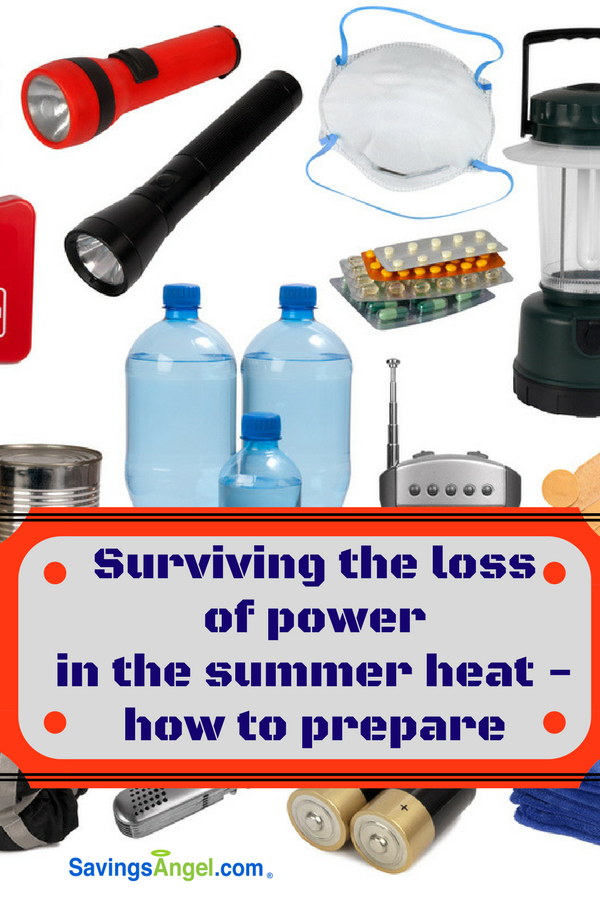 Surviving the loss of power in the summer heat – how to prepare
Surviving the loss of power in the summer heat – how to prepare
Just in the last couple weeks, summer storms pounded the Midwest, rendering thousands without power. In regions where it gets very cold, it's natural to remember the things that you need in case of a winter storm – but what about a storm that knocks out the power during the summer heat? Let's talk about surviving the loss of power in the summer heat – and how to prepare…
To be ready for any disaster, you need to have enough food (that doesn't require refrigeration or cooking), water, and other necessities for a minimum of 3 full days (a week is better), for each person in your household.
During the last round of storms that uprooted trees and torn down power lines, many were without power for over 3 days. As experienced by thousands, the heat during the summertime can cause food to spoil and people to feel poorly from the heat very, very quickly, so take immediate action even if you expect the power to come back on just in a few hours.
(1) Invest in a generator.
This will allow you, at a minimum, to keep your fridge and freezer from getting too warm and losing valuable food (and the money you spent on it all). Unless you can afford a large generator, you won't likely be able to power things like your air conditioner, but you may be able to run a fan or two to keep from getting overheated.
(2) When you don't have a generator
If you don't have a generator, make plans ahead of time with friends or relatives that live on different power grids and who might not lose power if you do; or make plans with someone who has a good generator. Get the food and any refrigerated medicines from your fridge and freezer into theirs right away.
If the outage is so widespread that friend's or relative's isn't an option, get ice immediately. Fill your freezer with ice and move as many things from your refrigerator to the freezer as you can. Using the refrigerator itself is a good alternative if your freezer is too small. Remember, though, without power, the ice will melt after a while – so you will need to keep replenishing it with more from the store.
If you have the room, you can leave partially melted bags of ice in, as even cold water is better than nothing for keeping food cool. But once they are no longer cool to the touch, remove them immediately. When you do need to replenish the ice, be very fast opening the doors, closing them as quickly as possible to retain the cold. In fact, if you can avoid opening it at all, except to replenish the ice, your items stand a much better chance of staying good until the power comes back on. Put a rope or bungee cord on the door handles to remind you not to open them.
(3) Plan ahead of time where you'll go to keep cool.
This may be a friend's or relative's home or public places that are air-conditioned and still have power, and where you can hang out for a while.
(4) Purchase fans that are battery operated and keep plenty of batteries on hand.
(5) Buy a backup battery to charge your cell phones.
These are very inexpensive – you can get standard or solar-powered ones for less than $20.
Along with the recommended preparations listed above, the website Ready.gov has lists for supplies to always have on hand for any disaster. Some of the basics they recommend:
- A battery-powered (or even hand cranked) radio, flashlights, and plenty of batteries for both
- First aid kit and a whistle to signal for help
- Moist towelettes and garbage bags for personal sanitation needs and clean clothes
- Manual can opener
- Wrenches or pliers to turn off utilities if necessary and a fire extinguisher
- 2 weeks' worth of prescription medications; an extra pair of glasses
- Infant supplies; Feminine care supplies; Pet supplies
- Plastic and paper mess kits
- Warm blankets and a portable heater that doesn’t require electricity


